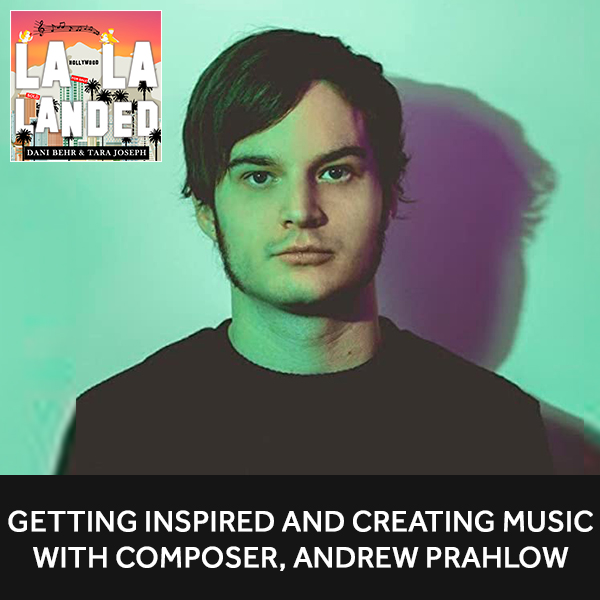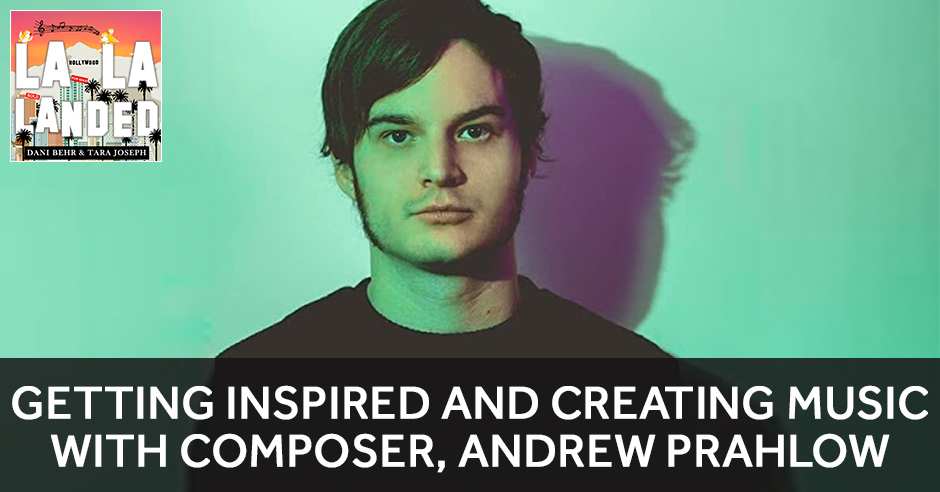
Composing music for video games and movies involves having an exceptional talent and being 100% driven. Andrew Prahlow has fast become a star in the world of composing music for video games, trailers, and films. In today’s episode, Tara Joseph chats to Andrew about the process of composing and creating music for all types of media. Andrew explains what it means to be a composer in the highly competitive world today whilst always looking at opportunities for growth and expansion.
—
Listen to the podcast here:
Getting Inspired and Creating Music with Composer, Andrew Prahlow
Interview with Composer Andrew Prahlow
I’m excited about our guest who is one of America’s most exciting composers of the time. Please welcome to the show the fabulous Andrew Prahlow. Andrew, how are you on? Welcome to the show.
I’m great. Thanks for having me. I’ve been looking forward to this.
I’m delighted you came to be on the show. As I start all episodes, I need to ask where are you?
I am in Glendale near Eagle Rock in the Highland Park area of Los Angeles.
I’m in Sherman Oaks so we’re not too far away.
It would only take less than ten minutes to get there.
Let’s talk about that. We are living through the coronavirus pandemic which is totally unprecedented and deeply distressing all around. How are you coping with self-isolation and quarantine?
Listening, playing, practicing a lot of music and working on recording. It’s a lot easier to watch TV shows and get lost in those or play games and remove yourself from the reality that we’re on a marathon. In some ways, it’s self-reflective in a good way but it’s also strange to be away from everyone physically.
Being a composer, I imagine that a lot of the time it’s quite isolating for you but this must feel different because it’s forced isolation.
The workflow hasn’t changed for me but one thing I always do because it feels a lot healthier is I’ll grab dinner by myself to be around people after a long workday since I’m always working from home in my studio. That is not possible anymore as well as live music is shut down. It does feel different. There’s a lot of time to think.
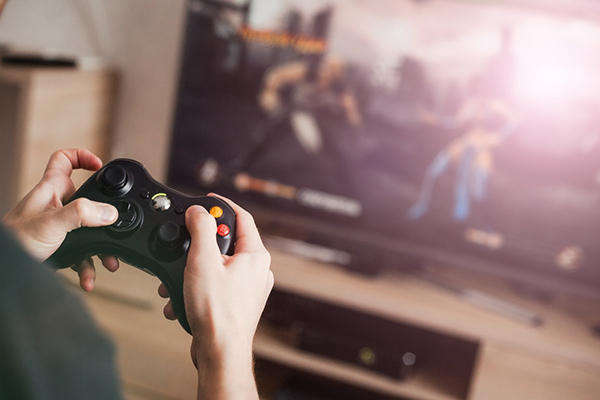
Are your family in the vicinity or are you doing lots of FaceTime with everyone?
I FaceTime with everyone. I’m from St. Louis and my parents lived there. My brothers live in Nebraska and Wisconsin.
They’re spotted all over the state. I do wish you to stay safe and healthy. Were you a musical child? How did you get into becoming a composer? Tell me a little bit about the backstory because I’m sure the readers would love to know.
I grew up playing classical trumpet starting when I was nine years old. That was my first instrument. When I was eleven, I got into playing guitar wanting to be in a band. It was a natural progression over time. I’m going through the music conservatory and everything in undergrad and graduate school. I realized I could combine my love for songwriting and playing guitar a lot with the elements of a classical trumpet, growing up in orchestras, and wind ensembles. Having the ability to take orchestration and notation classes, using the songwriting mentality behind especially things Outer Wilds and stuff where there are a lot of pop elements to it. There’s also dives in that classical area. It’s modern and intimate in ways and I’m able to use the skills I’ve learned over the years. I put it all in this one profession which has been fun.
Talking about Outer Wilds that came out in 2019, it’s a successful interactive video game. How did that come about?
I went to graduate school with Alex. He was in the game department while I was in the music department. I have always wanted to work in video games. It’s a super fun medium. They helped me a lot growing up through being able to have a nice escape. Not be able to explore these long stories and cool, exciting worlds that in some ways aren’t completely possible in other mediums depending on the amount of interactivity. Alex and I got along really well from the beginning. I loved his game ideas and he loves my music. This was the second project we worked on together. The first one was a complete student project and this one became what it is. All these years later since the development cycle was on and off for a few years.
When you’re presented with a video game, at what stage is the video game when you see it and you then start to write the score for it? How does that process work?
In the beginning, it’s using a lot of your imagination and having a lot of long conversations with the developer and the lead creator. Bouncing those ideas back and forth to try to develop the sound early on is always beneficial in the end, especially when things start to get a little bit more hectic with finishing the game and meeting deadlines. Having this backbone of how the score sounds is the longest part of the process. I’ve always found that having a good foundation at the beginning of working on a project that will be going on for a few years, it ends up saving a lot of time since you have much to draw from that is solid. It helped with Outer Wilds establishing that in the beginning too with the full elements in the ambient elements and being able to pull from that and expand to that as the story expanded and the world expanded.
Listening to, playing, and recording music are great ways to cope with the quarantine. Click To TweetDo you find that video games cross your path more than film scripts to write scores full or do you find that you get both opportunities equally?
Lately, it’s been more than games but that has to do with Outer Wilds in some ways. In 2017, I worked for VR Company on the game called Eclipse: Edge of Light that did well. We worked on another game called Covert.
Didn’t that get Mobile Game of the Year?
Eclipse: Edge of Light did. It was another small team project and we’re proud of it. We didn’t know what would happen. The reviews started coming in and Outer Wilds’ fashion started to get noticed and people started to play it. From there, I had been working on Outer Wilds before that was projects. I was on Eclipse for about two years. Outer Wilds was seven. Right after Outer Wilds was released in June 2019, I was asked to work on a game to make additional music in September 2019. It ended up being about an hour of music but I had to get that done in six weeks. It’s funny to go from a normal life cycle game to doing Outer Wilds which was forever and then jumping into a complete crunch time the whole time like figure out the development. I did the cinematic work on a game called The Tone. My friend James did all the game part of the soundtrack and he’s the one who brought me in.
You were saying that on Outer Wilds you had seven years to work on this but then you were also put on the spot where you had to do something incredibly quickly. How does that alter your creative process when you put with this tight deadline because I know as a creative, you have to go with the flow and you can’t force it?
With the one six-week deadline, I remember spending the first two weeks of that thinking about how the music should sound and how to develop ideas that would be able to last throughout the whole process of scoring all these shortcut scenes. I hadn’t sent any ideas over yet because I let them know that I would need two weeks to establish this backbone with Outer Wilds. I had a long conversation with the main composer on The Tone and he had established a lot. The cut scenes were a little different but I at least had a musical tone to start with what he had been working on. Once I started scoring the cut scenes, I sent over the first-day and I said, “How was this sound?” They’re like, “Let’s roll with that. That’s a good idea.” I was working on it every day. After a couple of weeks of those things, my friends are like, “Where have you been?” I’m like, “I’m working on this game every day.” It was fast but there was an ending because we knew when the deadline was to send everything over to Apple and get it approved. No matter what, it was like we were done. With Outer Wilds sometimes, it will get delayed or pushed back.
I’ve read that your sound has been described as emotive soundscapes with a core chamber, ensemble minimalism. Translate that to the world to understand exactly what that means. Do you agree with the descriptions?
It’s cool sounding.
I love what I’ve heard.
It sounds intellectual but what I strive to do in all projects is find a way to make things sound larger than life. I’ll spend a lot of time crafting the ambiances, soundscapes, and using a chamber ensemble, a soloist, or a solo piano. A handful of musicians of soloists throughout different tracks of the score and combining that with all the pre-recorded things and things I’m sketching out to make it sound big but still has that intimacy with the small ensemble. You can make things dynamic that way. If you pull out the chamber ensemble, it will turn into this huge bed especially handy and scoring for film. It’s handy in all mediums. If you’re doing underscore, you’re going to want to drop back. It’s the same with games, you don’t want to blast a new in the face the whole time. When you bring in the ensemble, it develops more intimacy and humanistic qualities to the music.
I saw that you studied at the fabulous USC graduate program. The Scoring for Motion Pictures and Television Program at USC, you don’t get much better than that. How was that experience? Leading on from that, what advice would you give to youngsters who might be reading this blog who would love to get into scoring for movies and video games?
It’s important to find someone who you trust who’s more experienced than you so that you can ask questions on career advice and bounce ideas off of them. Luckily, my first job was working for Jeremy Zuckerman and Benjamin Wynn on their Nickelodeon projects, The Legend of Korra and Kung Fu Panda: Legends of Awesomeness. I got to learn from them and they were able to critique my work being an assistant. That helped develop my foundation of knowing how to run a studio. From there, I started working with my friend Mark Petrie on trailer music and he would critique me as well and give me tips on what to do, what works, and what doesn’t. Over time, I was able to start doing those types of things more on my own. I’m still working with Mark all the time but I can even ask Jeremy or Ben questions if I need to. The important thing is to have friends that you trust in your advice. I don’t think there’s one way of anyone becoming a composer. I was always writing music and post it online. I had a website and I was using SoundCloud all the time and trying to get things on Spotify. Always being present on social media is helpful too especially when it’s such an isolating job if you’re working out of your own studio. Being present on the internet will go a long way if you’re committed to doing it consistently. I found that to be incredibly helpful.
Tell us a little bit about the arrangement you made for Beauty and the Beast.
That was through a company called PostHaste. I pitched for it. It was on and off process where I was submitting demos. On the first day, I do Be Our Guest. They had me do Tale As Old As Time and then they had me do another, Be Our Guest. It was Ariana Grande’s song Tale As Old As Time. They sent over her Tale As Old As Time and they wanted me to do one with that. They ended up having all these different versions for what ended up being maybe a 60-second trailer with a piano track they already wanted to be used. It goes into the Be Our Guests trailer like loud, hard-hitting typical trailer type of music but Beauty and the Beast style. This was for the Oscars premiere. I didn’t know if I had gotten it or not. I had no idea. I was sitting there watching the Oscars and waiting through all the breaks where they would premiere the new trailers. Music came on. It was nerve-wracking but then it was exciting to hear that and not know. There have been times where that’s happened and then I don’t end up getting it and someone else gets it which could be a bit of a bummer but I got used to it over time. Trailer music is incredibly competitive. That was a big highlight.
I’m sure you’re going to have tons more of those. Going back to where we are in a world where we’re all in isolation. You’re used to working in isolation but with a little bit of socializing in the evenings which has stopped. How do you think it will affect the music or the projects that you’re working on, working in this slightly different wild environment?
The one thing that will be slightly different is I know I won’t be able to have a soloist over to record here. It’s going to be finding solo musicians that can do remote recording. If there’s ever I need a small string ensemble or something, that’s going to have to be remote as well.
You have to find ways to make things sound larger than life. Click To TweetCan you explain to the readers how that works?
For the soloist, it’s a little bit easier because I’ll send over whatever notation I need to be done. Usually have a short Skype session with them and talk about textures that I want to create and guide them through. That’s the one thing I love about being able to record in person. I can come up with ideas off the top of my head, get it all notated quick and hand it to them when this is going to have to be a little more prepared. I haven’t had to do that yet. It’s only been 2.5 weeks. It will be something in the future where the orchestra is time-based. That’ll be mostly the same where you send over the music and then they record it and you give notes over when you’re watching the session. That’ll be similar. The soloist thing will be different. I’m talking to my friends who can record remotely to have them ready for when we need to do it. Figuring out what their workflow is like and figuring out what is easiest for them so that they’re most comfortable with being able to record at home and send over files.
Hearing how you make your life work and we’re all trying to make our lives work different and innovative ways. The world is fighting back. It had enough of us with all the climate change and it’s like, “I’m angry. I’m going to handle the situation in the way that I want.”
It gives us some time to be creative though which is nice. It’s refreshing to be sitting at home, working on new music and knowing that I have time. There’s not for working on my own stuff. There’s not a deadline. This is going to go for another 8 to 10 weeks.
I’m excited to hear what comes out of your isolation sessions.
We put one up. It’s not out on Spotify yet but I did one for Piano Day. It’s called Something to Look For. I’m not sure what’s going on all for Piano Day but I’ll have it on my social media and everything. Piano Day is a little bit different because there’s not many live concerts or any of that stuff that we normally do. That’s the first thing I’ve done for isolation music. It was fun. I’m happy with how it turned out.
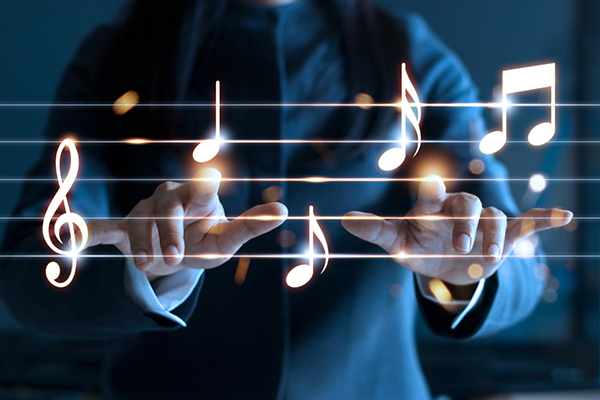
If you had a five-year game plan, where would you like to see yourself in five years?
I would love to work on a show that’s similar to Black Mirror or those types of sci-fi things. I’ve been watching Devs, that show is awesome. The Leftovers is another show. They’re darker but they’re not like Grimm. They have a lesson in the end and they’re immortal. I love shows like that that get into technology but its rooted and real-life earth in a lot of ways. It would be cool to work on a film or a game like that even. It would be one of my dream gigs.
Are there any movie directors whose work you look at and think, “I would love to work on a school for one of their projects.”
Alex Garland, he’s my favorite writer. It will be cool to work with him at some point. That’d be a dream project. It’s his way, high-end. He did Ex Machina and 28 Days Later. He’s been around for a long time. He’s my number one favorite.
Isn’t he British?
I believe so.
Moving on from there, how influenced have you been by different composers over the years? Are there certain ones who are like John Williams or Hans Zimmer? Are there certain composers that you emulate or have been very inspired by?
Johann Johannsson is definitely my number one. Max Richter is up there on the list and a lot of everyone coming out of there. Hildur with her score for The Joker. She’s a part of that whole new neoclassical movement that’s happening. It’s combining electronics and ambiances with orchestras. I’m influenced by a lot of post-rock bands like Explosions in the Sky and This Will Destroy You. That comes through in parts of Outer Wilds and some of my other things as Outer Wilds get slightly or heavily post-rock influence depending on how far they want me to push it. Over time, projects have been approaching me to write the music that I’ve always been wanting to write. At first, I was always jumping around genres a lot but I’ve been able to hone in on this certain style.
I’m excited to hear what comes next for you. It’s been a real honor chatting with you. I hope that you stay safe and healthy which I’m sure that you will. Please keep me posted on what’s happening next because I’m sure our readers will be fascinated. If you’ve got any questions for Andrew, feel free to fire them off to me through LaLaLanded.com and I can forward them on to you. Thank you and it’s been great.
The business of creating trailer music is incredibly competitive. Click To TweetThank you so much. Be sure to watch the BAFTA on April 2nd, 2020. It will be a live stream to see if I win the award or not or if our game lends any of the words are up for us. That’ll be exciting. We’re all a little bit nervous but we’re honored to be a part of that.
I will livestream that and make sure I watch it. I will be keeping everything crossed for you.
Thank you so much.
Thank you. Keep safe.
Important Links:
About Julia Alperovich
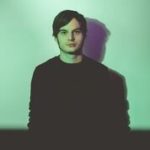
Andrew Prahlow’s music focuses on larger-than-life, emotive soundscapes with a core of chamber-ensemble minimalism, hoping to create a sense of familiar nostalgia for the listener.
He began his career in music as an intern at John Powell’s studio while completing his studies at the Scoring for Motion Pictures and Television (SMPTV) Graduate Program at USC. From 2011-2014, he assisted on the music of ‘The Legend of Korra’ for Jeremy Zuckerman and also on ‘Kung Fu Panda: Legends of Awesomeness’ for Zuckerman and Benjamin Wynn (Deru).
In 2015, his music was featured in trailers for Ridley Scott’s ‘The Martian’. From 2015-2016, Andrew composed ambient guitar soundscapes for the Madden NFL franchise. In 2017, Andrew wrote an arrangement of ‘Be Our Guest’ for the 2017 Academy Awards ‘Beauty and the Beast’ TV spot, and the score to the Mobile VR Game of the Year, ‘Eclipse: Edge of Light’. Andrew also writes for trailer campaigns, including ‘Star Wars’, ‘Avengers,’ ‘Blade Runner 2049’, and ‘Star Trek’ – often collaborating with Mark Petrie.

